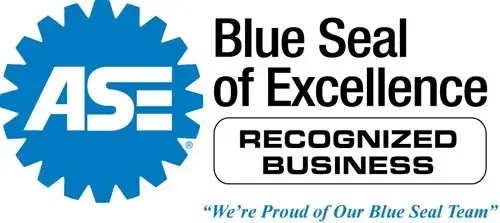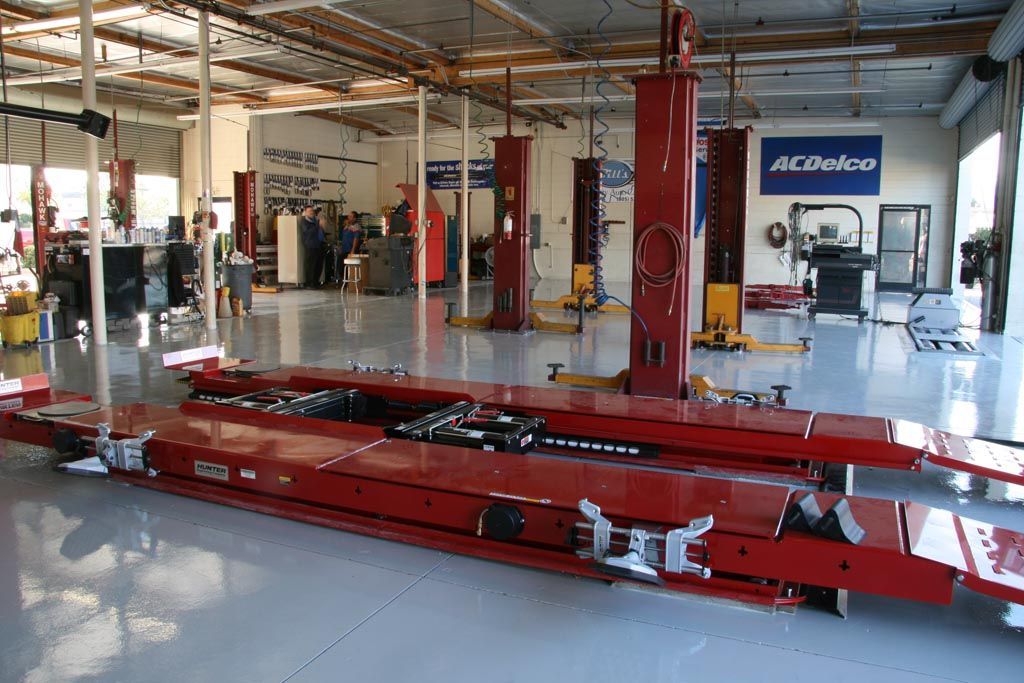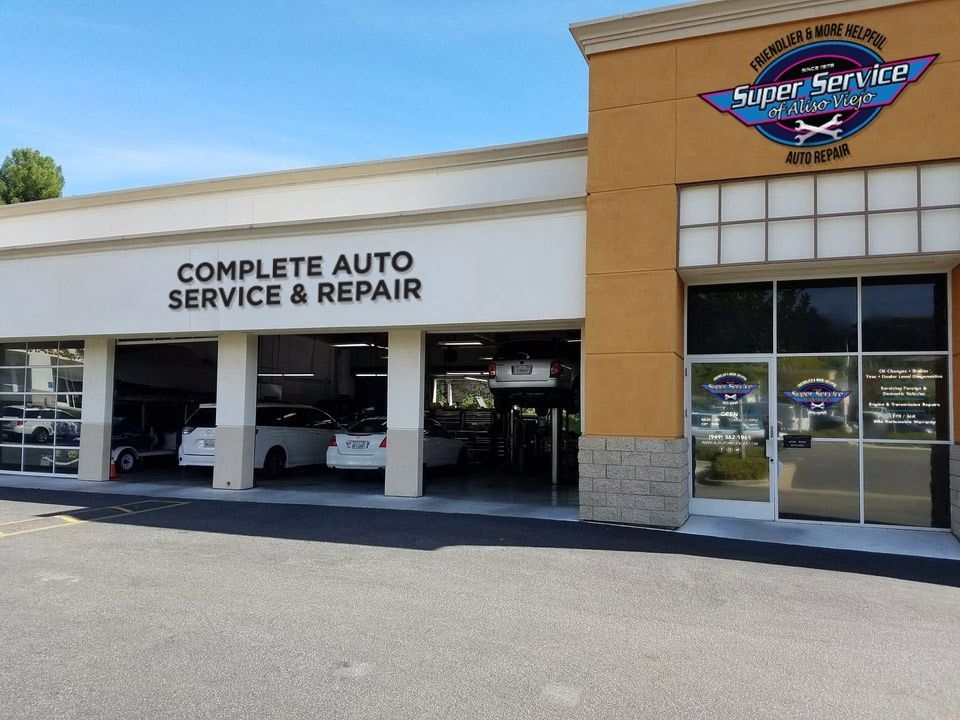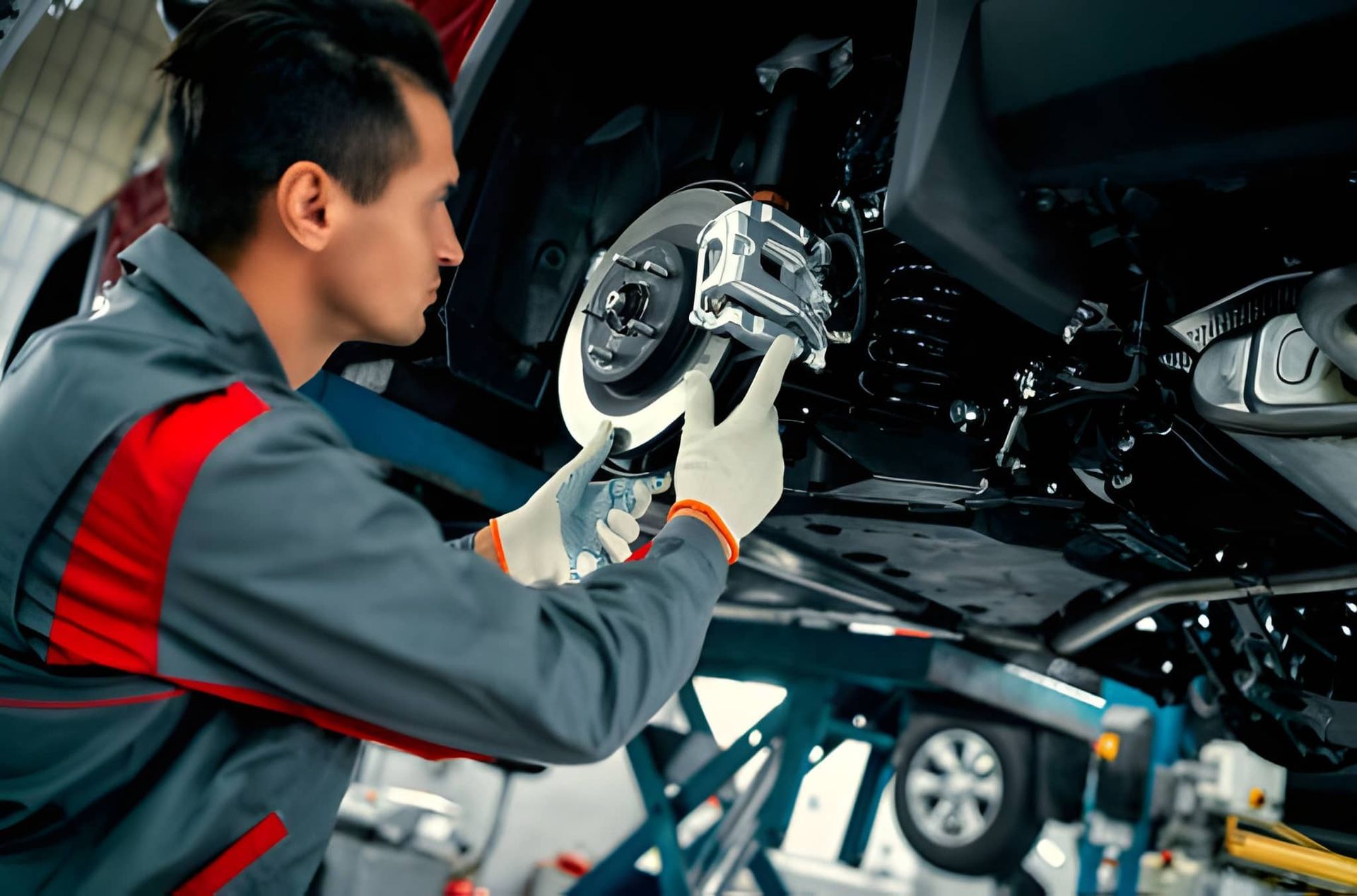Expert Auto Repair in Aliso Viejo, CA
Super Service of Aliso Viejo has established itself as a leading auto repair shop in the heart of Aliso Viejo, CA, renowned for its exceptional service and dedication to quality.
Our facility is equipped with state-of-the-art technology to handle oil changes, suspension work, brakes, air conditioning, diagnostics, and scheduled maintenance for all types of vehicles, including SUVs and trucks. Our focus is on providing top-tier service to all of South Orange County, ensuring your vehicle receives the care it deserves. Schedule your appointment today!
Services
Auto Repair & Maintenance Services in Aliso Viejo
We offer AC diagnostics and repair service for every vehicle to ensure your system runs efficiently, keeping your cabin cool.
We offer comprehensive brake service and maintenance to keep your vehicle safe every time you get behind the wheel.
When your check engine light comes on, we’ll quickly diagnose the issue and give you clear, honest solutions to get you back on the road with confidence.
We use advanced auto diagnostics to quickly uncover the source of your vehicle’s problems and explain the best repair options so you can drive with confidence.
If you’re having electrical issues, we’ll pinpoint the problem in your vehicle’s wiring, battery, or alternator and provide expert repairs to keep everything running smoothly.
When your engine needs attention, we’ll identify the issue and provide expert repairs or maintenance to restore power, performance, and reliability to your vehicle.
European Auto Repair
We specialize in European auto repair, giving your BMW, Audi, Mercedes, Volkswagen, or other import the expert care it deserves with precise diagnostics and trusted service.
We use advanced auto diagnostics to quickly uncover the source of your vehicle’s problems and explain the best repair options so you can drive with confidence.
We’ll restore your vehicle’s smooth ride and safe handling with expert suspension repair, fixing shocks, struts, and other components to keep you comfortable and in control.
We’ll diagnose and repair your transmission issues with precision, restoring smooth shifting and dependable performance so you can drive with confidence.
We use advanced auto diagnostics to quickly uncover the source of your vehicle’s problems and explain the best repair options so you can drive with confidence.
Why Regular Maintenance Matters
Staying on top of vehicle maintenance isn't just about avoiding breakdowns – it's about safety, reliability, and protecting your investment. Regular maintenance helps you:
- Catch small problems before they become expensive repairs
- Maintain your vehicle's warranty coverage
- Keep your family safe with properly functioning brakes and systems
- Maximize fuel efficiency and performance
- Extend your vehicle's lifespan significantly
Reviews
What Our Customers Say About Us
Why Choose Super Service of Aliso Viejo?
01
ASE-Certified Master Technicians
02
3-Year/36k-Mile Warranty
03
OEM Parts or Better
04
Digital Vehicle Inspections
05
Comfortable Waiting Area
06
Local Shuttle Service
07
Free Wi-Fi, Coffee, & Water
08
Loaner Cars Available
Our Location
Address:
27802 Aliso Creek Rd suite d-140, Aliso Viejo, CA 92656
Phone Number:
(949) 831-1525
Hours:
Mon - Fri 7:30AM - 5:30PM
Areas We Serve
- Emerald Bay
- Ladera Ranch
- Laguna Beach
- Laguna Hills
- Laguna Niguel
- Laguna Woods
- Lake Forest
- Las Flores
- Mission Viejo
- Ranch Mission Viejo
- And all of South Orange County
Our Team Members
Meet the Team
Committed to Excellence
Super Service of Aliso Viejo has established itself as a leading auto repair shop in the heart of Aliso Viejo, CA, renowned for its exceptional service and dedication to quality. Our facility is equipped with state-of-the-art technology to handle oil changes, suspension work, brakes, air conditioning, diagnostics, and scheduled maintenance for all types of vehicles, including SUVs and trucks. Our focus is on providing top-tier service to all of South Orange County, ensuring your vehicle receives the care it deserves.
Customer-Centric Approach
At Super Service of Aliso Viejo, our mission is to offer a repair service that is not only efficient and reliable but also friendly and accommodating. Understanding the inconvenience that vehicle maintenance can pose, we provide a range of customer conveniences including a local shuttle service, loaner cars, and a comfortable waiting area with free Wi-Fi, coffee, and water. Our aim is to make your auto repair experience as smooth and stress-free as possible.
Expertise You Can Trust
Our team of Master ASE-certified technicians brings a wealth of experience and expertise to every job. Whether it’s routine maintenance or complex repairs, we are equipped to diagnose and resolve any issue with precision. Our commitment to excellence is reflected in the detailed care we provide, ensuring your vehicle's performance and longevity.

Nationwide Warranty
Understanding the importance of trust and reliability in auto repair, Super Service of Aliso Viejo offers a comprehensive 3 Year/36,000 Mile Nationwide Warranty. This warranty is a testament to our confidence in the quality of our work and our commitment to your satisfaction, offering peace of mind with every service.
Join Our Family
When you choose Super Service of Aliso Viejo, you're not just a customer; you become part of our family. We pride ourselves on building lasting relationships through honesty, transparency, and exceptional service. Our goal is to be your go-to automotive repair shop, where you know your vehicle is in capable and caring hands. Visit us today and experience the difference that commitment, expertise, and a customer-focused approach can make.
What Matters to Us
Our Values
Trust
Unlike the industry's reputation, we prioritize honesty and transparency, building enduring relationships with our team, partners, customers, and community.
Excellence
We constantly improve in all aspects, focusing on both major and minor details, because exceptional service lies in the smallest of things.
Teamwork
We value teamwork, striving for continuous enhancement in every facet of our business, recognizing that even the tiniest details can make the difference between good and outstanding service.
Dignity
Our pride in work is evident. We uphold integrity, honor, honesty, and service as unwavering standards. If we fall short, we make it right, regardless of the cost.
Gallery
Our Gallery
Frequently Asked Questions
News & Blogs












